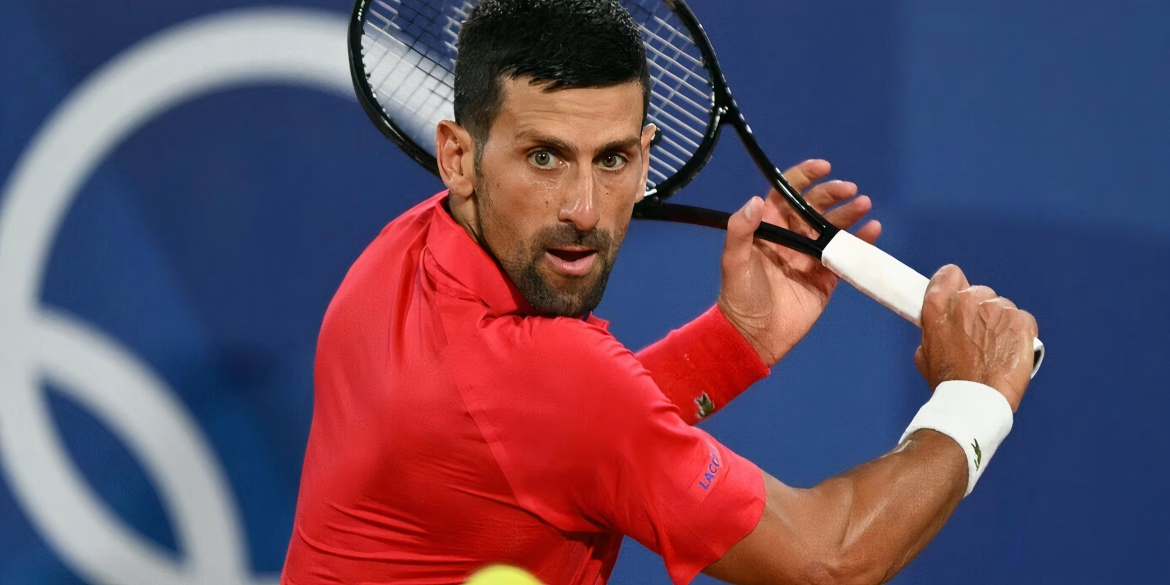Tennis, a sport renowned for its high-octane matches and iconic athletes, has been a staple of the Olympic Games since 1988. Yet, despite its popularity and the emotional pleas from stars like Novak Djokovic, the inclusion of tennis in the Olympics remains a contentious issue. Djokovic’s recent tears on the podium only underscore a broader debate: should tennis be an Olympic sport?
At first glance, tennis seems like a natural fit for the Olympics. It boasts a global following, features some of the sport’s most recognizable figures, and is played at an elite level. However, the inclusion of tennis in the Games has sparked a complex discussion about its place in the Olympic movement.
One argument against tennis as an Olympic sport revolves around its existing prominence. Tennis already has a robust professional circuit, with major tournaments like Wimbledon, the US Open, the French Open, and the Australian Open holding substantial prestige and financial rewards. The Olympic Games, by contrast, were originally intended to celebrate amateurism and highlight sports that were less commercialized. Critics argue that tennis, with its well-established professional framework, contradicts this ideal.

Moreover, the Olympic format presents unique challenges for tennis players. The event’s scheduling and format can disrupt the regular tour calendar, leading to fatigue and potential injuries. Tennis players often find themselves torn between the pursuit of Olympic gold and the demands of their professional careers. The high stakes of the Olympics can sometimes overshadow the more nuanced aspects of the sport, diminishing its competitive spirit.
Novak Djokovic’s recent tears at the Olympics have brought an emotional dimension to the debate. Djokovic, one of tennis’s greatest players, has spoken passionately about the significance of representing his country and the emotional weight of Olympic competition. For Djokovic and many athletes, the Olympic Games represent a pinnacle of personal and national achievement. His tears reflect the profound emotional connection athletes feel toward the Games.
Despite these personal stories, the broader question remains: does the emotional weight of the Olympics justify the inclusion of tennis? Critics argue that the emotional narratives, while compelling, do not address the fundamental issues surrounding tennis’s place in the Olympic framework. The Olympics were designed to spotlight a diverse range of sports and provide a platform for lesser-known disciplines. Including tennis, a sport with its own established global circuit, may detract from this mission.
Furthermore, the intense pressure and high stakes of Olympic competition can sometimes lead to controversies and disputes. The Olympic tennis event has faced criticism over scheduling conflicts, the handling of player fatigue, and the overall impact on the sport’s integrity. These issues highlight the tension between maintaining tennis’s professional standards and accommodating the unique demands of the Olympic format.
In the end, while the emotional stories of athletes like Djokovic add depth to the debate, they do not necessarily resolve the fundamental questions about tennis’s place in the Olympics. The sport’s existing prominence and the challenges posed by the Olympic format suggest that tennis may not align with the original spirit of the Games.
As the debate continues, it’s essential to weigh both the emotional and practical aspects of tennis’s Olympic inclusion. The sport’s global status and professional success highlight its unique position within the athletic world. While the Olympic Games offer a valuable platform for many sports, tennis’s place within this framework remains a matter of ongoing discussion and reflection.



